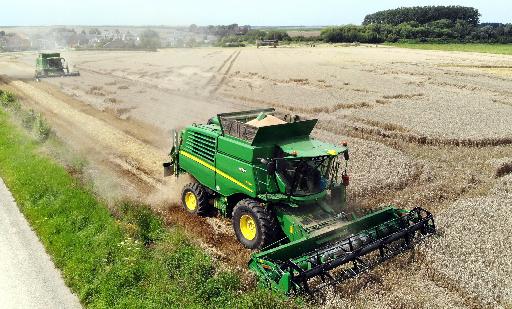The quality of harvests in Belgium this year, from grains to fruit and vegetables, has been affected by a humid spring with little sun and constant heavy rain throughout the summer.
The effects are being felt across the board, with most crops - from pears, the fruit most grown in Belgium, to cereals and the country’s other signature crop, potatoes – reeling from the adverse weather conditions.
This year’s yield of pears, for example, 90% of which are usually produced in Flanders and 10% in Wallonia, is expected to be about 25% lower than in 2020.
"This is due to frost early in the season, in some places, but also to the poor weather conditions, which prevent a good pollination of the flowers," Olivier Warnier of the Centre fruitier Wallon told Belga News Agency.
Related News
- Former pig farm in Flanders to become nature reserve
- Belgium cracks down on illegal horse meat
- List of food recalls for ethylene oxide grows
"The coming harvest could be the lowest in 10, 15 years," said Warnier, who added that the dip production could bolster prices.
A dark, cold spell in late May also caused many of the baby fruit to fall, the expert said.
Another major European grower of pears, the Netherlands, is also bracing for a poor harvest, and the situation is even worse for the continent’s No. 1 producer, Italy.
Apple production is expected to be as usual, but the rainy summer encouraged the formation of apple scab, while Poland, the main producer in Europe, is set for a record harvest, which could put further pressure on prices.
For cherries, planted on about 1,000 ha in Belgium, the harvest has been mediocre, with the rains causing many of the fruit to burst while being picked.
"For the Morello cherry, it’s been catastrophic," said Warner, stressing that sweet cherry losses are about 50 to 100% for those that were not protected against the rain, and 10% to 30-40% for those that benefited from a protection system.
Cereals, too, have been hit, including winter barley.
"Due to the rains, we lost 15% of the production we’d expected," Etienne Ernoux, a farmer in the Condroz, explained.
The same problem is affecting spelt, which will see a drop not only in quantity but also in quality, with specific weights down, according to Ernoux, who expects a 20% drop in his wheat harvest, which is now coming in.
Moreover, the quality of the grain may not be good enough to reach “bakery” standard, which would cause a marked drop in the value of the harvests.
Farmers have been using the window offered by the current good weather to harvest their crops, but they have little time left before the next rains, forecast for Monday, especially since cereals tend to spill out onto the ground.
"That makes it difficult to harvest and if you don’t harvest quickly, the grain on the ground risks germinating and losing still more of its value," Ernoux explained.
Still, the abundant rain favoured crops that require a good deal of water, such as maize.
On the other hand, the hot humid weather also encouraged mildew, greatly feared by potato farmers, meaning that, unlike previous record-breaking harvests, this year’s potato yield in Belgium is expected to be anything but good.
The Brussels Times

